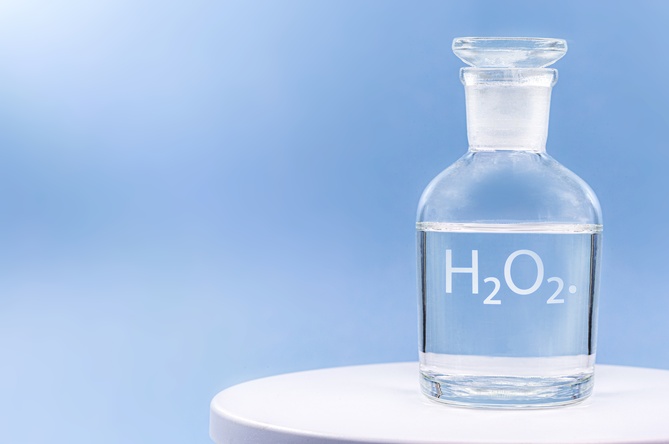Hydrogen peroxide is a versatile compound widely recognized for its disinfecting properties. Used in various concentrations, it proves to be a valuable tool in healthcare. While it is often associated with common tasks like cleaning minor cuts and scrapes, there are several less obvious but equally vital applications within medical settings. This article explores five unique uses for hydrogen peroxide in medical settings, highlighting its potential to improve patient care and maintain sterile environments.
1. Wound Disinfection
Hydrogen peroxide is important in wound care, especially for minor injuries and post-surgical care. Its ability to combat germs makes it a reliable option for cleaning open wounds. The application of the solution directly to the affected area actively helps remove dirt, debris, and pathogens, reducing the risk of infections. Its bubbling action often indicates the breakdown of harmful particles. Healthcare professionals find it particularly useful for wounds with dried blood or tissue, making cleaning more effective.
2. Oral Hygiene
Dental professionals often recommend hydrogen peroxide solutions for oral care. A diluted solution is widely used as a mouth rinse to combat bad breath and reduce harmful bacteria. Its antibacterial properties assist in keeping the oral cavity clean while relieving conditions like gum inflammation. Hospitals and dental clinics use hydrogen peroxide solutions as a pre-treatment before certain dental procedures to reduce bacterial buildup. This approach contributes to better outcomes and safer care for patients undergoing treatment.
3. Sterilizing Medical Equipment
Maintaining sterile medical tools is critical to preventing infections in healthcare facilities. Hydrogen peroxide solutions represent a go-to option for sterilizing specific medical equipment. Concentrated hydrogen peroxide disinfection can decrease pathogens on surfaces like surgical instruments and endoscopes. Many facilities also incorporate vaporized hydrogen peroxide systems in controlled settings to decontaminate sophisticated devices. Its non-toxic breakdown into water and oxygen makes it a sustainable choice for disinfection, aligning with stringent safety and environmental standards.
4. Treating Skin Conditions
Hydrogen peroxide effectively supports treating certain skin conditions, ranging from fungal infections to acne. Medical-grade solutions specifically target fungal infections in challenging areas prone to overgrowth. This application provides an alternative treatment for conditions often resistant to traditional methods. Its ability to diminish bacteria on the skin surfaces can benefit individuals managing skin ulcers or sores. However, healthcare professionals should use it cautiously on sensitive skin to minimize irritation risks.
5. An Antiseptic
The antiseptic properties of hydrogen peroxide make it an essential tool for maintaining hygiene in medical settings. Surfaces and treatment rooms often harbor bacteria that could pose risks to patients and staff. Regularly applying hydrogen peroxide as part of scheduled cleanings helps maintain a hygienic environment. This practice becomes particularly important in starting and managing medical facilities like hospitals, where patient safety is paramount. Its use extends beyond surface cleaning to maintaining cleanliness in operating rooms, ICUs, and patient wards.
Hydrogen peroxide’s unique applications contribute significantly to modern healthcare. These uses highlight its multifaceted role in improving treatment outcomes, reducing infection risks, and raising the standard of care. Hydrogen peroxide remains valuable for those wanting to start a hospital and professionals looking to incorporate effective cleaning solutions. Explore the potential of this humble yet powerful compound to elevate care quality for your patients.




